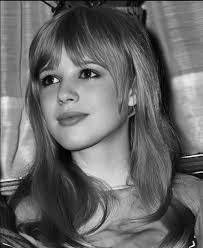Marianne Faithfull (1946–2025) lived a life that could be described as a song—haunting, raw, and unforgettable.
Born in London, with ties to Austrian nobility, she rose to fame in the vibrant era of the 1960s. She was just a teenager when she became the face behind the 1964 hit As Tears Go By—the first song ever written by Mick Jagger and Keith Richards. In no time, she was swept into the frenzy of fame, fashion, and the constant scrutiny of the media.
But Marianne Faithfull was never just a pretty face or the muse behind the music. She was a fighter.
After her early fame and a high-profile relationship with Jagger, Faithfull faced a dark period marked by addiction, homelessness, and heartache. Many people counted her out during those years. But Marianne wasn’t finished yet.
In 1979, she made a powerful return with Broken English, an album that silenced all doubts. Her voice, now raw and weathered, carried the echoes of countless struggles. It was no longer a pristine, youthful sound—it was the voice of someone who had truly lived. Broken English was unapologetically real and revolutionary, earning her a Grammy nomination and cementing her place in music history.
From then on, she was more than a survivor—she became a voice of truth. A fearless artist who never hesitated to speak her heart, whether through music, acting, or poetry. Her later albums, Negative Capability and She Walks in Beauty, were praised by both critics and fans, showcasing the depth of her artistic vision.
She even brought her unique brilliance to television, playing the role of God in Absolutely Fabulous.
Faithfull was fearless, honest, and brilliant. Her influence can be heard in the music of artists like Patti Smith, PJ Harvey, and Nick Cave. She proved that strength and vulnerability can coexist—and that sometimes, a broken voice is the one that speaks the truest words.
Her life wasn’t perfect, but it was poetic
